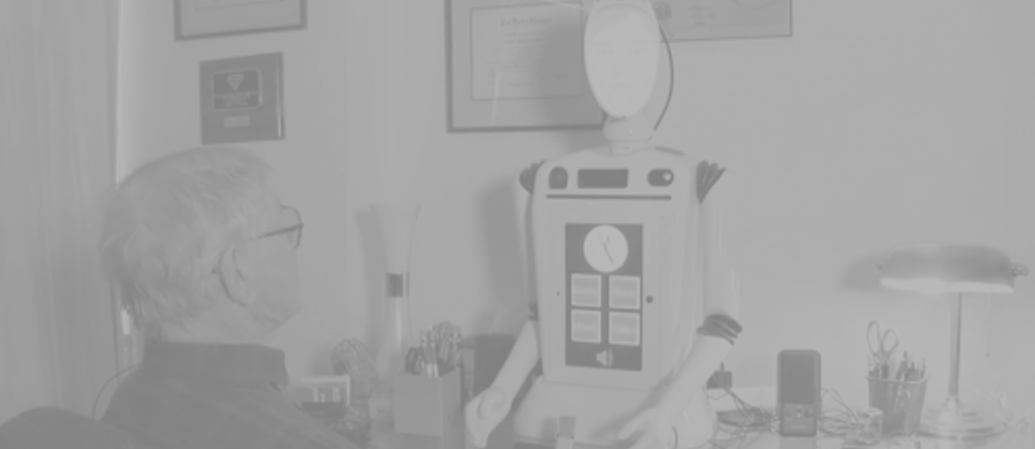Research at the University of Denver could help with the shortage of caregivers
As Americans live longer, the number of people suffering from Alzheimer’s and dementia continues to increase. A serious problem these patients face is a shortage of caregivers. The Bureau of Labor Statistics estimates that in the next five years, more than 1 million caregivers will be needed to care for our elderly.
Helping to meet the demand is Ryan, a companion robot being developed by Associate Professor Mohammad Mahoor and students in the Daniel Felix Ritchie School of Engineering and Computer Science.
“The purpose of Ryan is to use technology, especially robotics technology, to assist people,” Mahoor says. “Ryan is going to help people in terms of social interaction — those who are lonely, those who need support, and those who need a companion.”
Ryan is designed to assist the aging population, specifically those struggling with Alzheimer’s. Ryan is outfitted with artificial intelligence technology and is equipped with cognitive games that help keep the brain active. The robot can recognize who it interacts with and carry on conversations.
“Ryan can read people’s emotions through their facial expressions and then mimic it back,” Mahoor says. “Ryan is an empathic robot, meaning that empathy is part of her character to support people socially and emotionally.”
Ryan is currently being tested by senior citizens living at Kavod Senior Life in Cherry Creek.

“You never quite know where a conversation is going to lead,” says David Keir, a resident at Kavod Senior Life. “When I get up in the morning, she says, ‘be sure to have a good breakfast.’ She will remind me to be safe and remind me that it’s time to clean up my room, but she doesn’t scold me too bad.”Mahoor and his team are collecting data and studying how seniors interact with the robot. This information is being used to improve the next iteration of Ryan, which will include arms that will move to help coach seniors on how to be more active.
“It’s amazing,” Keir says of Ryan. “When I was a kid, like 70 years ago, I was reading science fiction stories about Ryan. So this is like being in a science fiction story.”
The goal over the next two years is to advance the technology and have a manufacturer mass-produce Ryan. The robot would then be available for consumers through a subscription basis, so you would only have Ryan for the time that you need it.
“The idea is to use technology and develop technology that can help people on a daily basis,” Mahoor says. “We don’t want technology to just sit in labs. We want ordinary people to be able to use and benefit from technology.”


Recent Comments